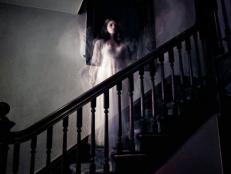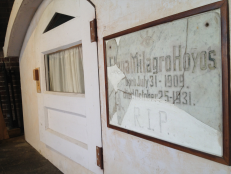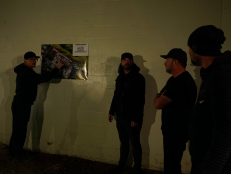Off-the-Beaten-Path Museums

Those moments when getting lost didn't turn out to be a waste of everyone's time ...
Massachusetts Museum of Contemporary Art; North Adams, Massachusetts
Halfway between New York and Boston, in Massachusetts's Berkshire mountains, sits the small, industrial city of North Adams. Its population isn't quite 15,000, yet surprisingly North Adams contains one of the largest centers of contemporary art in North America. The museum is housed in a 200-year-old site that has seen the manufacture of everything from cabinets and textiles to spacecraft and atomic bomb parts. This spirit of innovation and fabrication is continued in Mass MOCA's mission; its advanced facilities and abundant space (110,000 open square feet) put it high on the list of the world's best places to create and display art of the most demanding specifications. Indoor and outdoor bridges, elevated walkways, viaducts, courtyards, passages and expanses of red-brick walls provide a backdrop of almost limitless scale to the world-class productions and marriages of theater, installation, sculpture, cabaret, film, dance, painting and live music.
Louisiana Museum of Modern Art, Denmark
Nestled at the edge of a cliff behind the quiet, wooded harbor town of Humlebaek, 18 miles north of Copenhagen, is an exceptional museum of modern and contemporary art. The modernist building (a mix of Scandinavian and international elements) "cups" the cliff-face; the abundant lighting ensures that your view will be spectacular, whether you're concentrating on the well-thought out grouping of objects on display or daydreaming through the vast expanses of glass out at the sea's horizon beyond. The permanent collection includes works by many modern masters - a special room devoted to Giacometti provides a moving environment in which to experience his silent groups of bronze figures - and the sculpture garden alongside the cliff's edge provides an unparalleled space in which to roam alongside Moores, Calders and Picassos. There are also excellent facilities for engaging children's imaginations and staging world-class temporary shows. In addition, the museum offers the rare opportunity to wander out of its doors and down to the beach for a paddle, or perhaps to trace the lines of a Pollock in the sand (an art aficionado's in-joke, that one).
Musee de l'Ecole de Nancy; Nancy, France
A half-hour's walk from the paved town square in Nancy (in France's northeast corner) brings you to a beautiful turn-of-the-20th-century villa and garden: the Museum of the Nancy School of Art Nouveau. The villa itself is an accomplished example of art nouveau style, and it contains some exceptional pieces by the main proponents of the movement in the Lorraine area of France, including Victor Prouve, Eugene Vallin, Emile Galle and Louis Majorelle. The villa's design and lighting decor make it appear as though the building has grown out of the garden behind it: delicate, sap-like forms clutch the exterior windowpanes, inside a bureau is lit by inquisitive flower buds writhing and bursting open, corridors are lit by thistles, the tables by mushrooms, the ceilings by blown-glass gourds. Other items include exquisite glass tableware, fine inlaid tables and Prouve's extraordinary embossed book covers. They are marvels of craft, composition and color. Making your way back to the town center, you'll become well aware of the influence these artists had on the townscape; hardly an awning, gate, railing, window frame or doorway escapes the school's art nouveau handling of sensuous, organic line.
The Photographers' Gallery; London
London is undoubtedly one of the top cultural centers in the world. In its collections, you can view works of art or artifacts from nearly every culture and age, ranging from broad overviews to highly specialized collections. It's also one of the largest and busiest cities in the world, which unfortunately makes it highly unlikely that you'll get to see all the wonderful things on display in any reasonable period of time. In this regard, The Photographers' Gallery is a godsend. A minute's walk from Trafalgar and Leicester squares hide a pair of doorways on either side of a theater, behind which lies one of London's most valuable cultural assets. The Photographers' Gallery was the U.K.'s first independent photographic gallery when it opened in 1971. Since then it has managed to garner a well-deserved reputation for consistently staging excellent exhibitions that are beautiful, thoughtful and daring. No matter if you know what's showing or not, the PG is always worth a visit; there's rarely a crowd, the bookshop and print sales are very good, and best of all, it's free.
Cantos Music Foundation; Calgary, Canada
The city of Calgary is rightly famous for its "white hat" tradition - an ethos of welcoming that its inhabitants extend to their visitors year-round. Thankfully, this generosity extends to some of its cultural programming, too. The Cantos Music Foundation is a highly accessible museum collection containing nearly 500 keyboards and related (and sometimes bizarre) instruments in working order, some of which date to the 16th century, and almost all of which you're allowed to play (under supervision, of course). If you've two left hands, the friendly, expert guides will be more than happy to tickle the ivories for you. Highlights are abundant, including the "Ken Kesey box" (a recording device used to capture much of his Merry Pranksters' "activities" on their road trip across the States), the Rolling Stones' portable recording studio, the white upright piano on which Elton John composed his first five albums, an incredibly rare and playable Italian virginal dated from 1560 and a beautifully crafted, limited edition 'Rhapsody in Blue' Steinway, created on the 100-year anniversary of Gershwin's death and featuring the New York skyline faithfully reproduced in mother of pearl. The museum's Sunday tours are a must.
The Victor Vasnetsov House; Moscow, Russia
Just to the north of Moscow's Golden Ring, in the middle of a modern housing complex, lies the quiet residence of artist Viktor Vasnetsov. Hidden by the neighboring tower blocks and Olympic Sports Complex, the house/museum acts as an earthy respite. Vasnetsov lived from 1848 to 1926, 32 years of which he spent in this house. He produced genre, realist and controversial religious works, had studied in Paris and exhibited in its salon, but is famous for his "fairy tale" brand of paintings and architecture (he was a key participant in the Russian revival style). His work is most successfully realized in the fa��ade of Moscow's State Tretyakov Gallery. The house itself is stuffed with items either inspirational to or made by the artist. The furniture downstairs was designed by him; it is tiled, wooden, bulky and yet carved with a delicate finesse. Medieval elements abound; a chain-mail tunic greets visitors ascending the spiral staircase to his studio. Elsewhere figures from famous fairy tales surround you. Baba Yaga, the witch, flies away with child in hand, warriors confront monsters and princesses sleep.
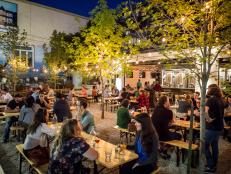


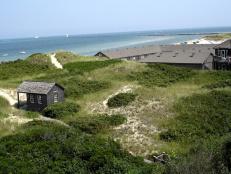
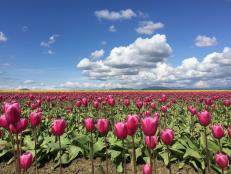
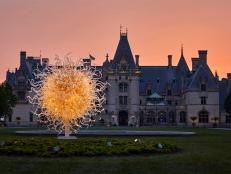
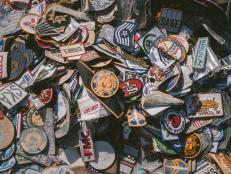
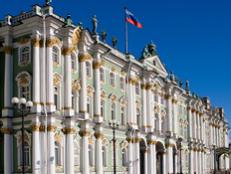

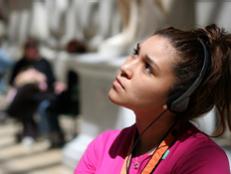


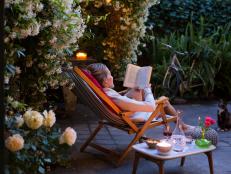




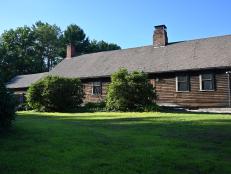
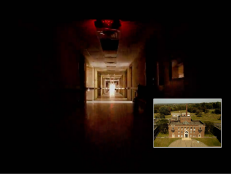

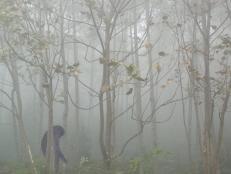

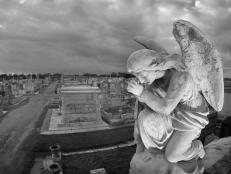

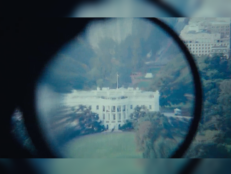

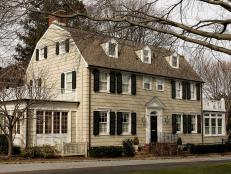
.jpg.rend.hgtvcom.231.174.suffix/1674758726773.jpeg)
